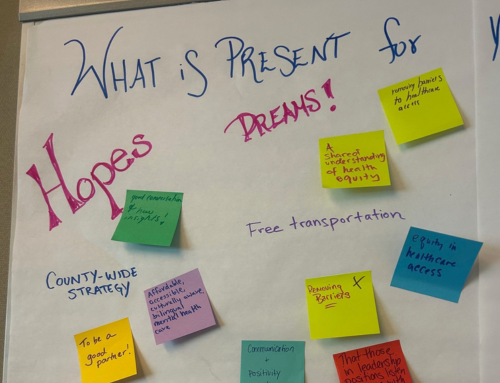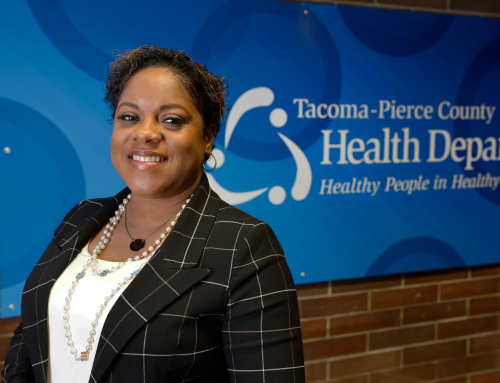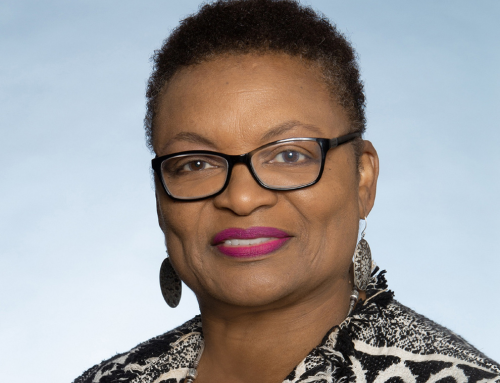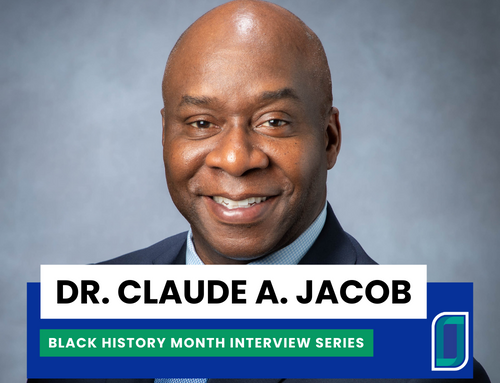Dr. Melva Black, Deputy Director for the Metropolitan Public Health Department (MPHD) in Nashville, Tennessee, shared insights into her journey in public health. From her early days as a volunteer in HIV education to her current role, Dr. Black has been a champion for building access, equity, and opportunities for her community. Dr. Black highlights the impact of accreditation on the department, the concept of public health transformation, and the importance of diverse leadership.
Dr. Black’s journey into public health began in the early 80s through volunteer community work in HIV education. When her first cousin, diagnosed with HIV during that era, died from complications of the disease, Dr. Black witnessed the disproportionate impact on Black and Brown communities with fewer resources. This led her to become a community outreach worker focused on self-sufficiency for families.
Although there were a few career pivots in between, including international health work in South Africa and Haiti and higher education, Dr. Black’s calling was in public health.
Public Health Accreditation, Transformation, and Workforce
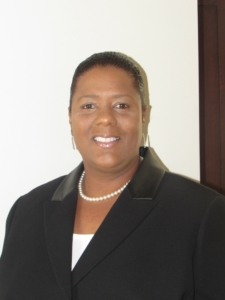 Accreditation created efficiencies, clarity in mission and vision, and fostered a culture of quality improvement for the department. Dr. Black emphasized the department’s use of a dashboard to define specific service metrics, create goals with a population focus, and ensure an equity-driven approach, citing an example related to opioid response. As opioids are impacting an increasing number of people, the department prioritized community engagement, information, and education in its approach.
Accreditation created efficiencies, clarity in mission and vision, and fostered a culture of quality improvement for the department. Dr. Black emphasized the department’s use of a dashboard to define specific service metrics, create goals with a population focus, and ensure an equity-driven approach, citing an example related to opioid response. As opioids are impacting an increasing number of people, the department prioritized community engagement, information, and education in its approach.
“Accreditation provides the foundational architecture for the department and guides how we get the work done,” Dr. Black said.
Data is essential to public health transformation. To Dr. Black, public health transformation is reimagining how data is used to inform community engagement, ensuring optimal health outcomes for everyone. MPHD focuses on data modernization to provide real-time information, enhance data literacy, ensure a systems approach to public health, and support workforce development.
Accreditation and transformation go hand in hand, complementing each other’s work. While accreditation provides a framework, the internal initiatives in response to the framework are what drive transformation. Dr. Black emphasized the importance of bottom-up approaches and the reciprocal relationship between PHAB and the health department.
“…while those [internal initiatives] may not have been identified by PHAB, we are identifying and building them in response to PHAB,” Black said.
A growth opportunity for Dr. Black is around workforce development. MPHD recently hired a workforce development director to prioritize efforts in building and sustaining the department’s workforce. Dr. Black shared an example of using data to implement innovative workforce development strategies, such as utilizing social media to diversify job postings, reach a wider pool of candidates, and become more inclusive.
Dr. Black also identified mentorship as vital for upskilling staff, commitment to the organization, succession planning, and diversifying the workforce.
Embedding Equity and Diversifying Leadership
Dr. Black and the MPHD are strong champions of diversity, equity, and inclusion. They are actively developing approaches to accelerate how the department achieves community voice and engages those with lived experiences. During the COVID-19 pandemic, the department used federal money to engage the community around COVID testing and distribution. Community health workers were hired as credible messengers to address social determinants of health and offer real-time responses to community needs. The department also conducted listening sessions to address concerns and reduce barriers, focusing on equity.
Dr. Black stressed the importance of diverse leadership, emphasizing that representation should mirror the construct of the community itself. She believes that diverse leaders, both formal and informal, are crucial change agents and key to advancing public health.
“The community should always dictate what leadership looks like in an organization, especially in public health,” Dr. Black said.
Dr. Black highlighted two areas in the department that hinge on having diverse leadership – violence prevention and opioid response. These two areas require credible messenger leaders with lived experience to drive effective and efficient sustainable change.
“We must have people who are representative of communities in spaces like this…This kind of diversification is critical for us,” Dr. Black emphasized.
Dr. Black remains committed to supporting others in the public health community and summed up her thoughts aptly:
“There will always be need. There will always be room for all of us to have a response to something. The key is to respond but respond in a way that creates opportunities for everyone…”
